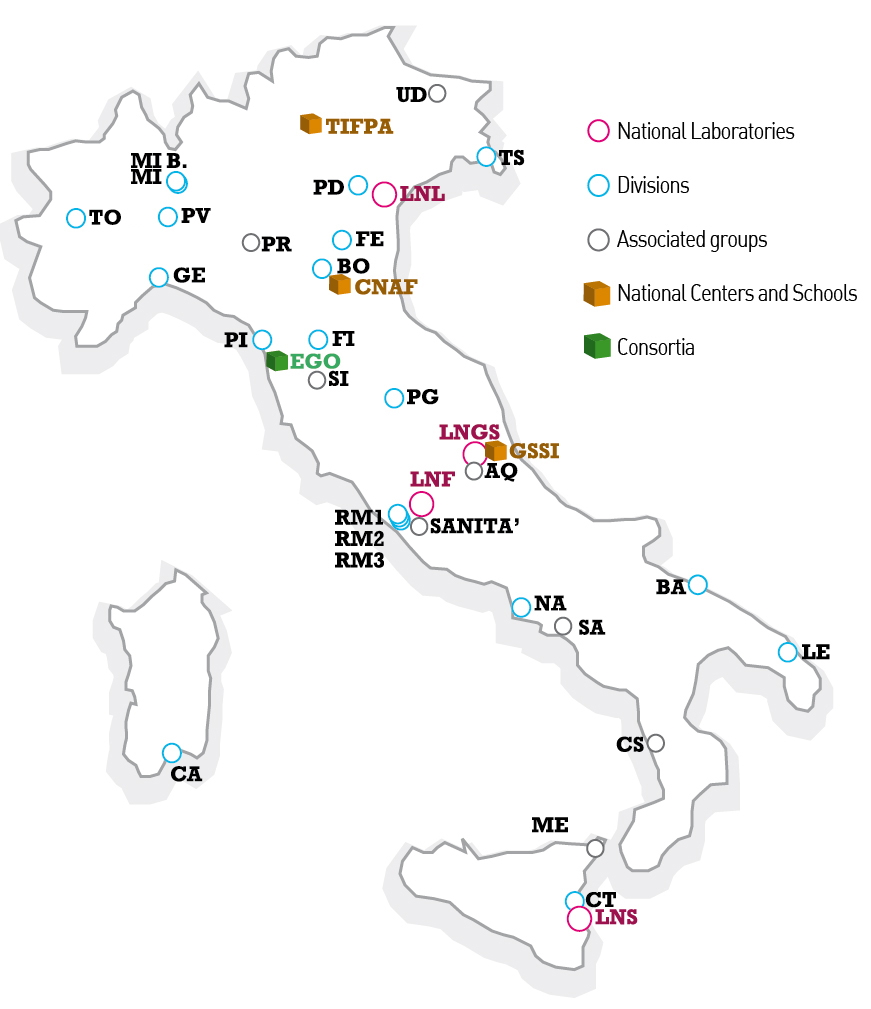Abstract
Understanding the ultimate laws of nature requires a strong interplay between theory and experiment. The QFT-HEP research, within the INFN line of Theory Particle Phenomenology, aims at making striving progress in bridging the gap between theory and experiment in particle physics and in its connection with cosmology, in line with the well established INFN international leadership in the field.
Despite its astonishing success, the Standard Model (SM) is an incomplete theory of fundamental interactions, since it is unable to account for dark matter, the observed matter-antimatter asymmetry and it does not include gravity. Additionally, there are tantalising experimental tensions with the SM, mainly in the quark and lepton flavour sectors, which further hint towards the existence of physics Beyond SM (BSM).
The researchers of this team adopt both a bottom-up and a top-down approach. The top-down approach consists in employing and improving QFT tools such as Renormalization Group (RG) techniques, vacuum stability analyses, gauge unification principles, conformal symmetry and its breaking, to formulate motivated extensions of the Standard Model and to compute, in novel ways, physically relevant observables. Within the bottom-up approach efforts are devoted to identify and study observables sensitive to New Physics (NP), in particular in flavour physics, to interpret the observed tensions with the SM and constrain NP scenarios. More generally, the ultimate goal is to explore new paradigms in the way novel theories of nature are formulated and tested.
The team involves 5 Units with recognized experience in the field. The main research topics are:
Flavour physics in the Standard Model and Beyond (Bari, Cosenza, Lecce, Napoli)
Vacuum stability analyses (Catania, Lecce)
Conformal and GUT extensions of the Standard Model and topological transitions (Cosenza, Lecce, Napoli)
Phenomenological applications of AdS/CFT methods (Bari, Cosenza, Lecce)
RG flows and their application to NP (Catania)
Main international collaborations:
